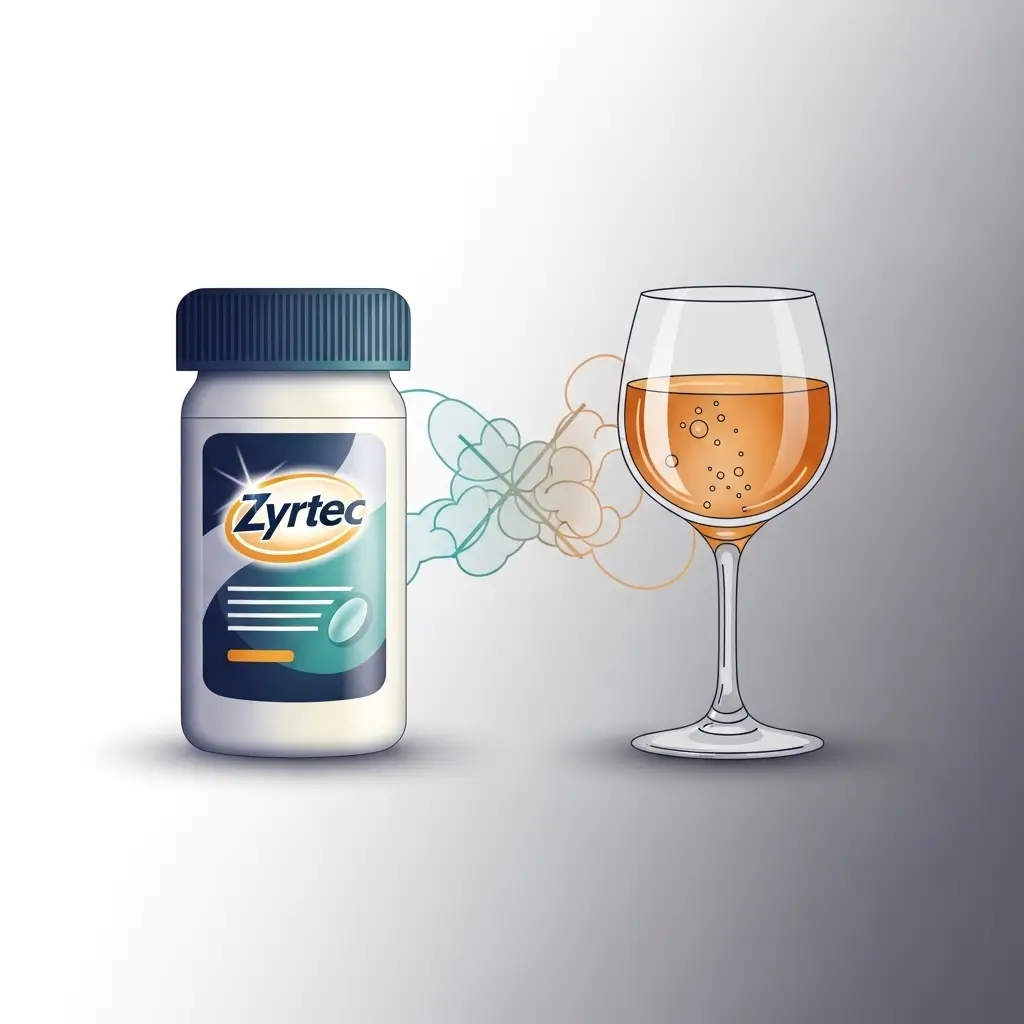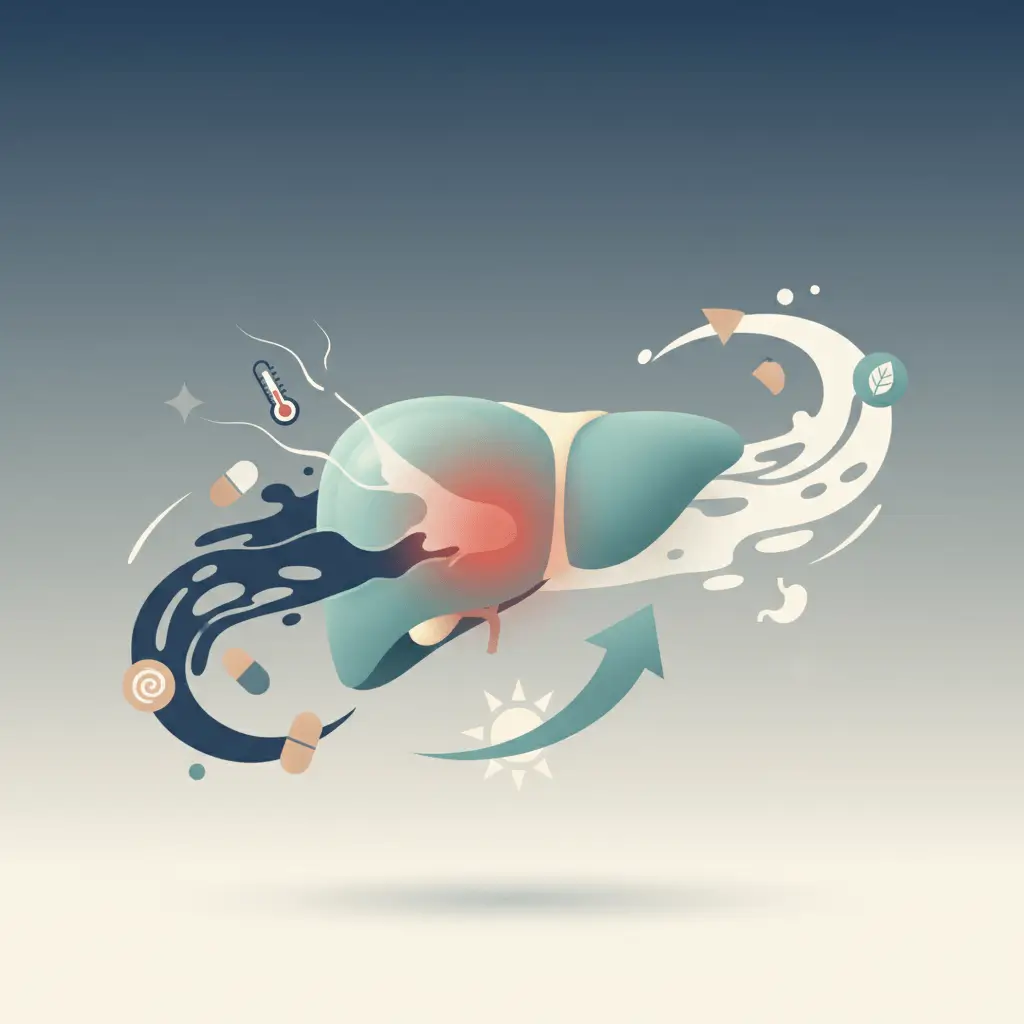Features of the Best Drug Rehab Centers
When it comes to finding the best drug rehab centers, there are several key features to consider. These features play a crucial role in ensuring effective and successful addiction treatment. Two important features to look for in the best drug rehab centers are personalized treatment plans and a comprehensive approach to addressing addiction.

Personalized Treatment Plans
One of the hallmarks of the best drug rehab centers is their commitment to providing personalized treatment plans tailored to each individual's needs. Recognizing that each person's experience with addiction is unique, these centers understand the importance of customizing treatment to maximize effectiveness [1].
By creating individualized treatment plans, the best drug rehab centers can address the specific needs, preferences, and circumstances of each patient. These plans may include a combination of therapy, counseling, medication management, and other services to holistically address the physical, psychological, and social aspects of addiction recovery [2].
Comprehensive Approach to Addressing Addiction
The best drug rehab centers take a comprehensive approach to addressing addiction. They understand that addiction is a complex issue that requires a multifaceted approach for successful recovery. These centers employ a team of experienced and qualified professionals, including doctors, nurses, therapists, and counselors, who work together to provide comprehensive care and support to patients throughout their recovery journey.
A comprehensive approach to addressing addiction involves treating not only the physical dependence on drugs but also the underlying psychological and emotional factors that contribute to addiction. By combining various evidence-based treatment modalities, such as therapy, counseling, and medication-assisted treatment, the best drug rehab centers provide patients with the tools and resources necessary to achieve long-term sobriety.
By offering personalized treatment plans and a comprehensive approach to addressing addiction, the best drug rehab centers ensure that individuals receive the individualized care and support they need to overcome addiction and embark on a path to a healthier and drug-free life.
Importance of Mental Health Services
When seeking the best drug rehab centers, it's crucial to prioritize those that offer comprehensive mental health services alongside addiction treatment. These centers recognize the significance of addressing co-occurring disorders for effective recovery outcomes [1].
Addressing Co-occurring Disorders
Co-occurring disorders, also known as dual diagnosis, refer to the presence of both substance use disorders and mental health conditions in an individual. It is not uncommon for individuals struggling with addiction to also experience mental health issues such as anxiety, depression, or bipolar disorder.
The best drug rehab centers understand the importance of addressing these co-occurring disorders simultaneously to ensure successful recovery. By providing specialized treatment programs that target both addiction and mental health, these centers offer a comprehensive approach to care.
The integration of mental health services within drug rehab centers allows for a more holistic treatment approach. It enables individuals to receive the necessary support and therapy to address the underlying mental health conditions that may contribute to their substance abuse.
Dual Diagnosis Treatment
Dual diagnosis treatment is a specific approach within drug rehab centers that focuses on addressing both addiction and mental health disorders concurrently. This treatment model recognizes that effective recovery requires targeting and treating both conditions simultaneously.
By providing dual diagnosis treatment, drug rehab centers can help individuals understand the complex interplay between their addiction and mental health. They create tailored treatment plans that address the unique needs of each person, taking into account their specific substance abuse patterns and mental health symptoms.
Through a combination of evidence-based therapies, such as cognitive-behavioral therapy (CBT) and motivational interviewing (MI), alongside medication-assisted treatment (MAT) when appropriate, drug rehab centers can effectively support individuals in their journey towards recovery [3]. These evidence-based treatment modalities have been proven effective through scientific research.
By offering mental health services, including dual diagnosis treatment, the best drug rehab centers recognize the importance of addressing co-occurring disorders for successful recovery outcomes. This comprehensive approach ensures that individuals receive the necessary support to overcome both addiction and mental health challenges, leading to long-term sobriety and improved overall well-being.
The Significance of Aftercare Support
Recovering from drug addiction is a lifelong journey that extends beyond the initial treatment phase. The best drug rehab centers understand the importance of aftercare support in helping individuals transition back to their daily lives and maintain long-term sobriety. By providing essential tools and resources, these centers empower individuals to navigate the challenges of post-treatment life successfully.
Transitioning Back to Daily Life
Transitioning from a structured treatment environment to everyday life can be overwhelming for individuals in recovery. The best drug rehab centers recognize the significance of assisting clients during this critical period. They offer comprehensive aftercare planning, ensuring a smooth transition and reducing the risk of relapse.
Aftercare support may involve various components, such as outpatient therapy, support groups, sober living arrangements, vocational training, and educational programs. These resources help individuals develop essential life skills, regain their independence, and reintegrate into society with confidence.
Tools and Resources for Long-Term Sobriety
Maintaining long-term sobriety requires ongoing support and access to tools that facilitate a drug-free lifestyle. Top drug rehab centers prioritize aftercare programs and resources to promote sustained recovery.
Common tools and resources provided by these centers include:
- Outpatient Therapy: Continued individual and group therapy sessions help individuals process challenges, develop coping strategies, and build a strong support network.
- Support Groups: Connecting with others who have experienced similar struggles through support groups like Alcoholics Anonymous (AA) or Narcotics Anonymous (NA) can provide invaluable peer support and accountability.
- Sober Living Arrangements: Transitional housing options, such as sober living homes, provide a supportive and substance-free environment for individuals in early recovery.
- Educational Programs: Workshops, classes, and educational resources equip individuals with information about addiction, relapse prevention, and healthy lifestyle choices.
- Relapse Prevention Techniques: Learning effective strategies to identify triggers, manage cravings, and cope with stressors is essential in maintaining sobriety over the long term.
By offering these tools and resources, the best drug rehab centers ensure that individuals have the necessary support and guidance to navigate the challenges of everyday life without turning to substances.
Recovery from drug addiction is a continuous process, and the best drug rehab centers recognize the importance of aftercare support. By prioritizing the transition back to daily life and providing tools and resources for long-term sobriety, these centers contribute to the success and well-being of individuals in recovery.
Evidence-Based Treatment Modalities
When considering the best drug rehab centers, it's important to focus on evidence-based treatment modalities. These are interventions that have been proven effective through scientific research and can significantly contribute to successful recovery. Here are three commonly utilized evidence-based treatment modalities:
Cognitive-Behavioral Therapy (CBT)
Cognitive-Behavioral Therapy (CBT) is a widely recognized and effective approach in treating substance abuse disorders. This therapy focuses on identifying and changing negative thoughts and behaviors that contribute to addiction. By challenging and reshaping these patterns, individuals develop healthier coping mechanisms and strategies to prevent relapse. CBT equips patients with practical skills to manage cravings, identify triggers, and build resilience.
Motivational Interviewing (MI)
Motivational Interviewing (MI) is a patient-centered approach that aims to enhance motivation and readiness to change. This therapy method acknowledges the individual's autonomy and focuses on resolving ambivalence towards substance use. Through empathetic and non-judgmental conversations, therapists help individuals explore their desires, values, and goals. By highlighting discrepancies between current behaviors and personal aspirations, MI encourages individuals to take steps towards positive change.
Medication-Assisted Treatment (MAT)
Medication-Assisted Treatment (MAT) combines medication with behavioral therapy to address substance use disorders. This approach is particularly effective for opioid and alcohol addiction. Medications, such as methadone, buprenorphine, or naltrexone, are used to reduce withdrawal symptoms, cravings, and the risk of relapse. MAT is often integrated with counseling and therapy to provide comprehensive support and increase the chances of long-term recovery.
By incorporating these evidence-based treatment modalities, the best drug rehab centers can provide individuals with a solid foundation for overcoming addiction. It's essential for rehab centers to have qualified professionals and a multidisciplinary team that can tailor these therapies to each patient's specific needs and circumstances. This personalized approach increases the likelihood of successful outcomes and long-term sobriety.
Remember, seeking help from reputable drug rehab centers that prioritize evidence-based treatment modalities is crucial in embarking on the path to recovery.
Individualized Treatment Plans
One of the key features that distinguish the best drug rehab centers is their commitment to providing individualized treatment plans tailored to the unique needs of each person seeking recovery. Recognizing that addiction experiences vary greatly from person to person, these centers understand the importance of personalizing treatment for better outcomes.
Tailoring Treatment to Unique Needs
Individualized treatment plans take into account various factors, such as the severity of addiction, the presence of co-occurring disorders, and the specific challenges and circumstances of the individual. By tailoring the treatment approach to the unique needs of each patient, these centers can address the underlying causes of addiction and create a more effective path to recovery.
The best drug rehab centers employ a team of experienced and qualified professionals, including doctors, nurses, therapists, and counselors, who collaborate to develop and implement individualized treatment plans. This multidisciplinary approach ensures that each aspect of the individual's recovery journey is addressed, encompassing physical, psychological, and social aspects of addiction.
Customized Approaches for Better Outcomes
Individualized treatment plans may include a combination of evidence-based therapies, counseling, medication management, and other services that are specifically tailored to meet the needs of the individual. The goal is to create a comprehensive and personalized approach that maximizes the chances of successful recovery.
By customizing treatment approaches, drug rehab centers can address the unique challenges and barriers that individuals face on their journey to sobriety. This individualized approach also allows for adjustments and modifications to the treatment plan as the person progresses through their recovery, ensuring that their evolving needs are met.
Quality drug rehab centers recognize that no two individuals are the same and that a one-size-fits-all approach to addiction treatment is not effective. By providing individualized treatment plans, these centers empower individuals to overcome their addiction in a manner that is best suited to their unique circumstances and needs.
In the next sections, we will explore additional features of the best drug rehab centers, such as comprehensive aftercare planning, the importance of addressing co-occurring disorders, evidence-based treatment modalities, and the significance of attaining and maintaining abstinence.
Comprehensive Aftercare Planning
When it comes to the best drug rehab centers, comprehensive aftercare planning is a crucial component of the treatment process. These centers understand that recovery is an ongoing journey and prioritize providing individuals with the necessary support and resources to maintain sobriety long-term. Let's explore two important aspects of comprehensive aftercare planning: connecting with support groups and utilizing outpatient services and therapy.
Connecting with Support Groups
Support groups play a significant role in the recovery process, providing individuals with a network of peers who understand the challenges and triumphs of addiction. The best drug rehab centers recognize the importance of support groups in maintaining abstinence and preventing relapse. These centers often facilitate connections to local support groups, such as Alcoholics Anonymous (AA) or Narcotics Anonymous (NA), where individuals can share their experiences, receive guidance, and build a strong support system.
Support groups offer a safe space for individuals to discuss their struggles, gain insights from others who have faced similar challenges, and receive encouragement. They promote a sense of accountability and community, helping individuals stay motivated and focused on their recovery goals. Regular attendance at support group meetings can provide ongoing support and reinforcement, helping individuals navigate the ups and downs of their journey to sobriety.
Outpatient Services and Therapy
Comprehensive aftercare planning also involves utilizing outpatient services and therapy. These services are designed to provide continued support to individuals as they transition back to their daily lives after completing their initial treatment program. Outpatient therapy allows individuals to continue their therapeutic work on a regular basis while providing a structured environment for ongoing recovery.
Outpatient services can include individual counseling, group therapy, family therapy, and educational sessions. These services aim to address any ongoing challenges, reinforce coping mechanisms, and help individuals develop healthier habits and behaviors. By participating in outpatient therapy, individuals can continue to work on their emotional, psychological, and behavioral aspects of recovery.
Therapy sessions and outpatient services are tailored to meet the unique needs of each individual. They provide a supportive and nonjudgmental environment where individuals can openly discuss their experiences, explore underlying issues, and develop strategies to maintain long-term sobriety.
By prioritizing comprehensive aftercare planning, the best drug rehab centers ensure that individuals have the necessary tools and resources to maintain their sobriety beyond the initial treatment program. Connecting with support groups and utilizing outpatient services and therapy are vital components of this aftercare support system. These resources help individuals stay connected, receive ongoing guidance, and develop the skills needed to navigate the challenges of daily life while staying on the path of recovery.
Attainment and Maintenance of Abstinence
When it comes to drug rehab centers, one of the primary goals of treatment is the attainment and maintenance of abstinence. Total abstinence from drugs and alcohol is strongly associated with a positive long-term prognosis. Let's explore the importance of total abstinence and its impact on long-term recovery.
Importance of Total Abstinence
Achieving and maintaining total abstinence is a critical aspect of successful recovery from substance abuse. It involves abstaining from the use of drugs and alcohol completely. The best drug rehab centers recognize the significance of total abstinence in helping individuals break free from the cycle of addiction.
Total abstinence is essential because even small amounts of substance use can trigger cravings and lead to a relapse. By committing to complete abstinence, individuals can avoid the risks and consequences associated with substance abuse. It allows the body and mind to heal, promoting physical and emotional well-being.
Positive Long-Term Prognosis
Striving for total abstinence is strongly linked to a positive long-term prognosis. According to studies, individuals who maintain abstinence following treatment have better outcomes in terms of sustained recovery and improved quality of life. Prolonged abstinence following treatment is also a good predictor of continuing success.
Long-term recovery is a journey that requires ongoing support and commitment. Treatment programs that emphasize abstinence and provide comprehensive aftercare support have higher success rates. These programs offer a continuum of care, ensuring that individuals receive the necessary resources and guidance to prevent relapse and maintain their sobriety.
By prioritizing total abstinence and engaging in a comprehensive treatment program, individuals increase their chances of achieving lasting recovery. It's important to remember that recovery is a lifelong process, and ongoing support is crucial to sustain abstinence and prevent relapse.
In conclusion, the best drug rehab centers recognize the importance of total abstinence in achieving successful outcomes. By committing to complete abstinence and engaging in a continuum of care, individuals can pave the way for long-term recovery and a brighter future free from the grips of addiction.
Addressing Multiple and Complex Problems
Effective drug rehab centers understand that substance abuse is often accompanied by multiple and complex problems that need to be addressed in order to support a successful recovery. These problems can include medical and mental illnesses, disrupted relationships, and impaired performance.
Medical and Mental Illnesses
Substance abuse can have a profound impact on an individual's physical and mental health. The best drug rehab centers recognize the importance of addressing these medical and mental illnesses as part of the treatment process. They have a team of experienced professionals, including doctors and nurses, who provide comprehensive medical care and support throughout the recovery journey.
By addressing medical illnesses, such as liver disease or infections related to substance abuse, these rehab centers aim to improve the overall health and well-being of individuals. They provide necessary medical interventions, treatments, and ongoing monitoring to ensure optimal physical health during the recovery process.
Additionally, mental illnesses often co-occur with substance abuse. Conditions such as depression, anxiety, or post-traumatic stress disorder (PTSD) can contribute to the development and maintenance of addiction. The best drug rehab centers integrate mental health services into their treatment programs. They offer therapy and counseling sessions that focus on addressing underlying mental health issues and providing support for individuals struggling with these co-occurring disorders.
Disrupted Relationships and Impaired Performance
Substance abuse can have a detrimental impact on personal relationships and overall performance in various areas of life. The best drug rehab centers recognize the importance of addressing these disruptions and impairments as part of the recovery process.
Therapy and counseling play a crucial role in helping individuals navigate and repair relationships that have been affected by substance abuse. By providing a supportive and understanding environment, rehab centers help individuals develop healthy communication skills, rebuild trust, and establish positive connections with their loved ones.
Furthermore, substance abuse can significantly impair performance in various domains, such as work, education, and personal goals. Rehab centers offer specialized programs and interventions to address these impairments and help individuals regain their productivity and achieve their full potential. Through vocational training, educational support, and counseling, individuals can develop strategies to overcome the challenges caused by substance abuse and thrive in their personal and professional lives.
By addressing the multiple and complex problems associated with substance abuse, the best drug rehab centers provide individuals with the necessary tools and support to achieve lasting recovery. Through comprehensive treatment plans, personalized care, and a focus on holistic well-being, these centers aim to empower individuals to lead fulfilling lives free from the grip of addiction.
Prolonged Abstinence and Continuing Success
When it comes to overcoming substance abuse, the goal of treatment in drug rehab centers is the attainment and maintenance of abstinence. Prolonged abstinence following treatment is a strong predictor of continuing success, and individuals who remain in treatment for longer periods of time are more likely to achieve maximum benefits.
Length of Treatment and Maximum Benefits
Research has shown that the duration of treatment plays a crucial role in the recovery process. The longer an individual remains in a drug rehab center, the greater the likelihood of achieving positive outcomes. Treatment programs that provide extended care and support allow individuals to address the underlying issues contributing to their addiction and develop effective coping mechanisms.
By participating in a comprehensive treatment program, individuals have the opportunity to delve deeper into the root causes of their substance abuse and learn strategies for sustained recovery. This extended treatment duration facilitates the necessary changes in behavior, thinking patterns, and lifestyle that can lead to long-term success.
Decreased Frequency and Severity of Relapse
One of the primary objectives of drug rehab centers is to help individuals achieve and maintain abstinence. Evaluations of substance abuse treatment efforts have shown encouraging results, with the majority of substance-dependent patients eventually stopping compulsive use and experiencing less frequent and severe relapse episodes.
By providing a structured and supportive environment, drug rehab centers equip individuals with the tools and skills needed to prevent relapse. Through therapy, counseling, and education, individuals learn effective coping strategies, develop a strong support system, and gain a deeper understanding of the triggers and risk factors associated with their addiction. This knowledge and support contribute to decreased relapse rates and increased long-term success in recovery.
Achieving prolonged abstinence and continuing success in recovery often requires comprehensive aftercare planning and ongoing support. Quality drug rehab centers prioritize the development of personalized aftercare plans, recognizing that recovery is an ongoing process [3].
By connecting individuals with support groups, outpatient services, therapy, and other resources, drug rehab centers help individuals maintain abstinence and prevent relapse. Ongoing support is crucial in navigating the challenges and temptations that may arise following treatment, and it plays a vital role in prolonging abstinence and promoting continuing success in recovery.
In conclusion, the length of treatment and the provision of comprehensive aftercare support are essential factors in achieving prolonged abstinence and continuing success. Drug rehab centers that prioritize these aspects of treatment offer individuals the best chance at maintaining sobriety and leading fulfilling lives free from substance abuse.
Treatment Settings for Substance Abuse
When seeking help for substance abuse, it's important to consider the different treatment settings available. The best drug rehab centers offer a range of options to meet the unique needs of individuals on their path to recovery. Here, we will explore two common treatment settings: inpatient hospitalization and residential, intensive outpatient, and outpatient treatment.
Inpatient Hospitalization
Inpatient hospitalization is a treatment setting where individuals stay within a hospital or medical facility for the duration of their treatment. This setting is typically recommended for individuals with severe substance abuse issues or those who require intensive medical care during detoxification. Inpatient treatment provides a structured and controlled environment, ensuring round-the-clock support and supervision. It allows individuals to focus solely on their recovery without the distractions and temptations of the outside world.
During inpatient hospitalization, individuals receive comprehensive care that includes detoxification, therapy, and medical support. This setting is suitable for individuals who require a higher level of care due to the complexity of their addiction or the presence of co-occurring disorders.
Residential, Intensive Outpatient, and Outpatient Treatment
Residential, intensive outpatient, and outpatient treatment settings provide varying levels of care and flexibility based on an individual's needs. These settings allow individuals to receive treatment while still maintaining some level of independence and involvement in their daily lives.
- Residential Treatment: Residential treatment programs involve individuals living on-site at a treatment facility for an extended period, typically ranging from 30 to 90 days. This setting offers a structured and supportive environment where individuals can focus on their recovery. Residential treatment provides a range of therapies, counseling, and activities to address the physical, emotional, and psychological aspects of addiction.
- Intensive Outpatient Treatment: Intensive outpatient treatment programs provide individuals with a structured treatment schedule while allowing them to return home each day. These programs typically involve several hours of therapy and counseling sessions multiple times a week. Intensive outpatient treatment is suitable for individuals who require a higher level of care than traditional outpatient treatment but do not need the 24-hour supervision provided in residential treatment.
- Outpatient Treatment: Outpatient treatment is the least restrictive treatment setting. It allows individuals to receive treatment while living at home and attending therapy and counseling sessions on a scheduled basis. Outpatient treatment is ideal for individuals who have completed a higher level of care, such as residential or intensive outpatient treatment, and are transitioning back into their daily lives while still receiving support.
The choice of treatment setting depends on various factors, including the severity of the addiction, the presence of co-occurring disorders, and the individual's personal circumstances and support system. The best drug rehab centers offer a range of treatment settings to ensure that individuals can access the level of care that best suits their needs, increasing the chances of successful recovery.
References
[1]: https://americanaddictioncenters.org/rehab-guide/amenities-services
[2]: https://www.dunhamhouse.ca/rehab-montreal
[3]: https://americanaddictioncenters.org/therapy-treatment
[4]: https://www.ncbi.nlm.nih.gov/books/NBK64815/
[5]: https://americanaddictioncenters.org/rehab-guide/success-rates-and-statistics













